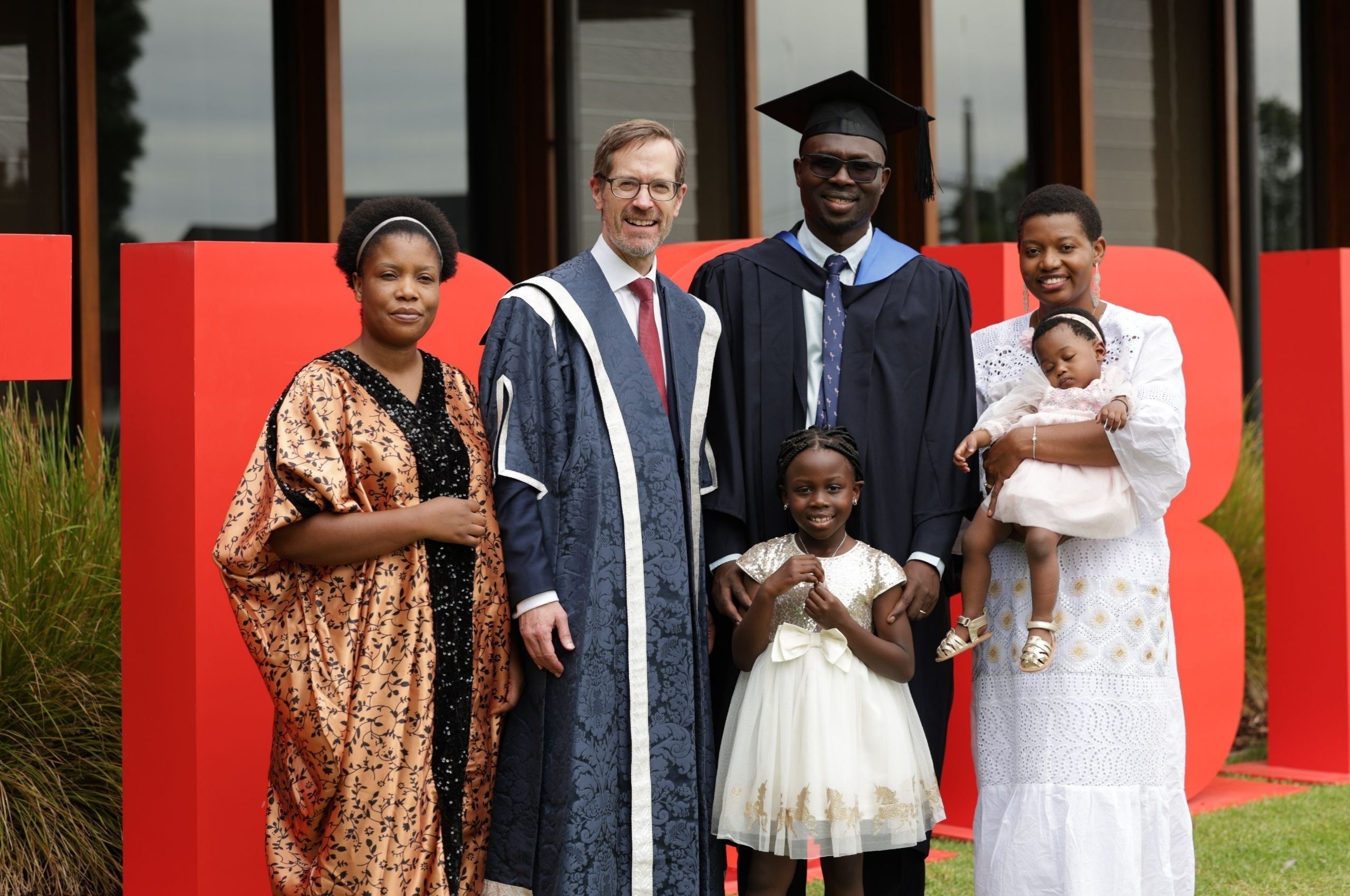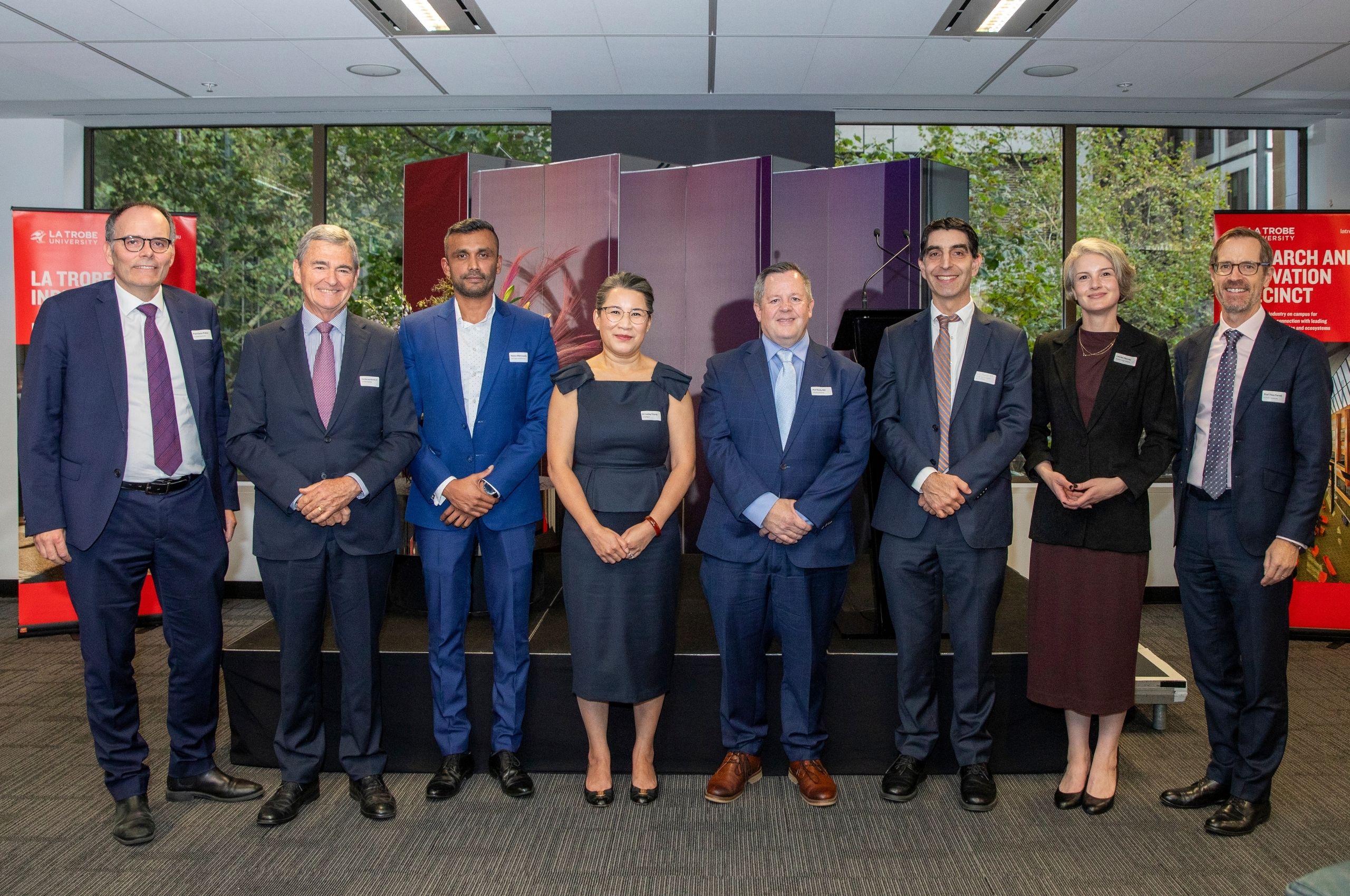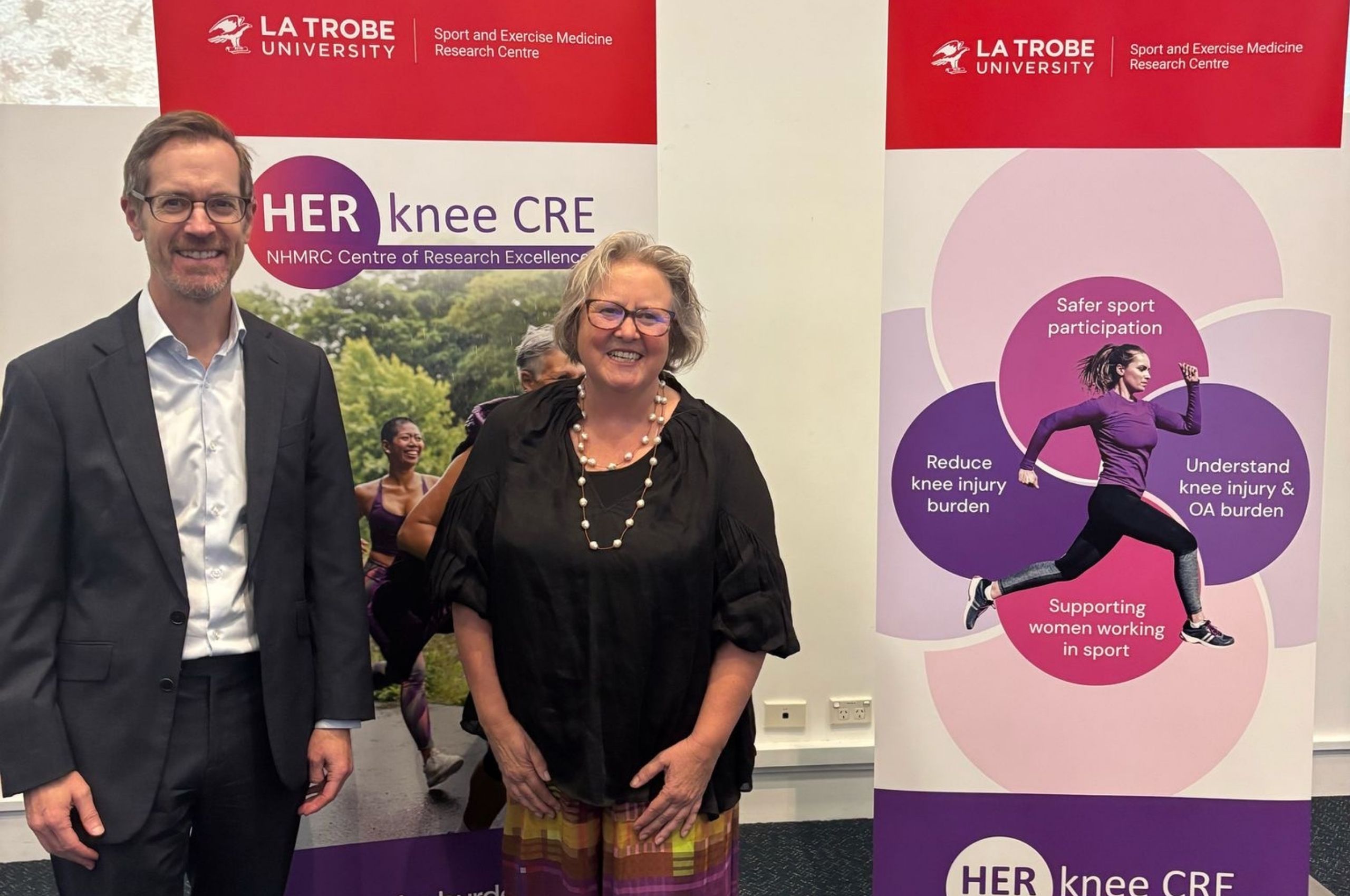April 2025
Thursday 10 April
Welcome to my April blog. We’re in the midst of our 2025 graduation program, which commenced in Albury-Wodonga last month.
One of the highlights of working at La Trobe is attending these ceremonies and seeing our newest graduands cross the stage in front of their families and friends. It’s always a proud moment when people receive their testamur after working so hard to finish their degree. Graduations are also a time to reflect on La Trobe’s impact in building capacity and developing skills and knowledge in the communities we serve, especially in regional areas. 47 per cent of our regional campus students are the first members of their families to attend university, so we have a huge impact across the State.

On 28 March, I attended a graduation in Mildura, a community in which our mission to provide local access to learning and world-class university research really comes to life. 1,500 people have graduated from our Mildura campus, with more than 2,400 La Trobe alumni living and working in the Sunraysia region. There were many inspirational stories amongst the 47 graduates conferred at the Mildura Arts Centre, including Jules Kangeta, who spent 14 years in an East African refugee camp before coming to Australia and studying for a Bachelor of Social Work (Honours) at La Trobe. I’m looking forward to Bendigo graduations next week as we continue celebrating our regional impact.
Meanwhile, Federal Treasurer Jim Chalmers handed down the Federal Budget on 25 March. In his Budget speech, the Treasurer said Government is “investing in every stage of education”. The budget confirmed plans to legislate previously announced initiatives to reduce student debt by 20 per cent and lift loan repayment thresholds for graduates. It also contained some commitments that align with La Trobe’s health innovation program, including funding to expand the Primary Care Nursing and Midwifery Scholarship Program and to support new medical places, with a focus on primary care.
The higher education sector will watch the outcome of the Federal election called for 3 May with great interest. As I noted in my last blog, the sector has implored both sides of politics to provide greater support for the vital work of universities in supporting national development and prosperity. You can read Universities Australia’s election statement here.
I’d now like to mention some recent activities and achievements from across the University.

Eagle takes flight
It was terrific to take part in the launch of the La Trobe University Eagle Fund at our City campus last month. Delivered in partnership with Breakthrough Victoria, the fund provides an $18 million pre-seed investment program that will make a big difference in helping La Trobe research with strong commerciality to reach its full potential. The first two spin-out companies supported by the Fund demonstrate the kind of impact it will have in translating research into commercial innovations.
The first innovation is a system developed by start-up Gaia Project Australia in collaboration with researchers from the School of Computing, Engineering and Mathematical Sciences and the School of Agriculture, Biomedicine and Environment, which has the potential to increase yields of salad greens by 40 per cent while reducing costs by 50 per cent compared to other indoor farming systems.
The second innovation is a blood-based diagnostic platform that enables early detection of Alzheimer’s, Parkinson’s, and other neurodegenerative diseases that has been developed by La Trobe University spin-out company ExCelligent, which was formed to commercialise technology invented at the La Trobe Institute for Molecular Science.
We look forward to seeing Gaia Project Australia and ExCelligent take forward their innovations to achieve commercial success and real-world impact.
Health innovation
Several recent events and grant announcements show why La Trobe’s expertise in health innovation is so highly regarded.
Three La Trobe projects have received a total of $6 million from the Australian Government Medical Research Future Fund (MRFF) for projects that improve health and wellbeing, particularly in regional communities. Leigh Kinsman and colleagues from La Trobe’s Violet Vines Marshman Centre for Rural Health Research won a $2.8 million grant to reduce wait times for skin cancer treatment in the Loddon Mallee region; Della Forster from the Judith Lumley Centre received a $2.9 million grant to support collaboration with community Elder Aunty Gina Bundle to implement and expand culturally safe continuity of care for women having an Aboriginal or Torres Strait Islander baby; and Simon Egerton from the School of Computing, Engineering and Mathematical Science was awarded $900,000 for his work with rural health consumers and clinicians to create the Heart Health Check Kit, which overcomes challenges rural communities face in accessing healthcare.

Last month, we launched the HERknee Centre of Research Excellence being led by the La Trobe Sport and Exercise Medicine Research Centre, which received $3 million from the National Health and Medical Research Council (NHMRC) to address the increased incidence of sports-related injuries among women and girls, and the poorer outcomes and pain they experience following injury.
I am also delighted to acknowledge La Trobe University’s Australian Institute for Primary Care and Ageing (AIPCA), which received almost $5 million in funding in 2024 to support research, consultancy, and educational activities, including a $2.1 million grant from Dementia Training Australia to provide training to the aged care workforce and general practitioners, and $1.7 million to undertake an Evaluation of Virtual Nursing in Residential Aged Care in partnership with the John Richards Centre for Rural Ageing Research based at our Albury-Wodonga campus.
I’m very confident about our ability to continue having an impact through our health innovation program. Last month, La Trobe’s nursing and sports-related programs were ranked in the world’s top 50 under the latest QS Subject Rankings, and we launched a new collaborative research hub with Northern Health. There was also a terrific turnout of some 200 staff at our inaugural health innovation showcase, which was led by program co-leads Jane Mills and Russ Hoye.
Education innovation
Our education innovation program continues to go from strength to strength. The School of Education has launched a new evidence-based learning initiative, the Science of Mathematics Education (SOME) Lab, following the extraordinary success of the School’s Science of Language and Reading (SOLAR) Lab that has been influential in shifting government policy towards explicit teaching. The SOME Lab will play a critical role in addressing declining numeracy skills amongst Australian school students by addressing gaps in teacher education and delivering online short courses to retrain educators in explicit teaching.

AI-first
Last week, hundreds of leaders from universities, vocational providers and edtech companies gathered at the State Library Victoria for the Higher Education in the Age of AI conference, co-hosted by HEDx and La Trobe University. Our Chief Information Officer, Shainal Kavar, addressed the conference to discuss our Responsible AI Adoption Strategy. An important insight is the moral imperative for universities to play a leading role in preparing our students and our communities for the transformative change that will come with AI. AI expert and La Trobe Vice-Chancellor’s Fellow Susan Zhang captured well what it means to be AI-first, telling delegates that it entails “a commitment to change and to growing with our students.”
Among the international contributors to the conference was Lev Gonick, the Enterprise Chief Information Officer at Arizona State University, one of the world’s pioneering universities in AI and educational innovation. Lev visited our Bundoora campus the day before to share insights about ASU’s experience with AI. One of the key takeaways was the way that AI has not simply improved efficiency at ASU but has elevated the University’s mission to be “measured not by whom it excludes, but by whom it includes and how they succeed”. Similar to La Trobe, ASU has a significant portion of first-in-family students, and it was enlightening to hear Lev describe how AI was leveraged at ASU to enhance the student experience by providing personalised support.
In my conversations with staff, I know there is a desire for more information about how we will take forward our ambition to be an AI-first university. We will soon be issuing the first quarterly staff update on our Responsible AI Adoption program to keep you informed about projects underway across the University and provide information on staff support and training in AI.
Upcoming events
On 29 April, our Professor of Public Engagement Clare Wright is presenting the first Launches at the Library event for 2025. La Trobe scholars and writers Carrie Tiffany, Kelly Gardiner, and Kylie Mirmohamadi will join with author Sharmini Kumar to launch two outstanding new books, Miss Caroline Bingley, Private Detective and Diving, Falling. You can register here.

On 7 May, Robert Manne’s Ideas and Society series will consider The future of Australia’s alliance with the United States. Nick Bisley will lead a discussion with former Australian Minister for Foreign Affairs Gareth Evans, renowned defence strategist (and La Trobe University Press author) Hugh White, and ANU security expert Jennifer Parker. You can register here.
La Trobe Art Institute (LAI) is presenting a workshop with visiting artist Alex Martinis Roe in Bendigo on 10 May that will consider ways to document, archive, theorise, and tell stories about social justice movements. More information is available here.
LAI’s next exhibition, Unbecoming, opens on 22 May. Featuring works by artists with ties to regional communities, it examines the ‘queer gothic’ and how regional communities can be particularly fertile spaces for subcultures to develop.
In closing
It’s been another busy month at La Trobe. I hope you enjoy the Easter break and an opportunity to spend time relaxing away from work. I’d also like to remind you that Easter coincides with our first Recharge and Focus period, a new initiative we have introduced to intentionally ease the pace of work at key times throughout the year.
Whether you use this period to rest and reset by taking some additional leave days between the Easter and Anzac Day public holidays or choose to work and use the days for some focussed tasks, I hope this new initiative has a positive impact on staff wellbeing across the University.
Best wishes,
Theo
